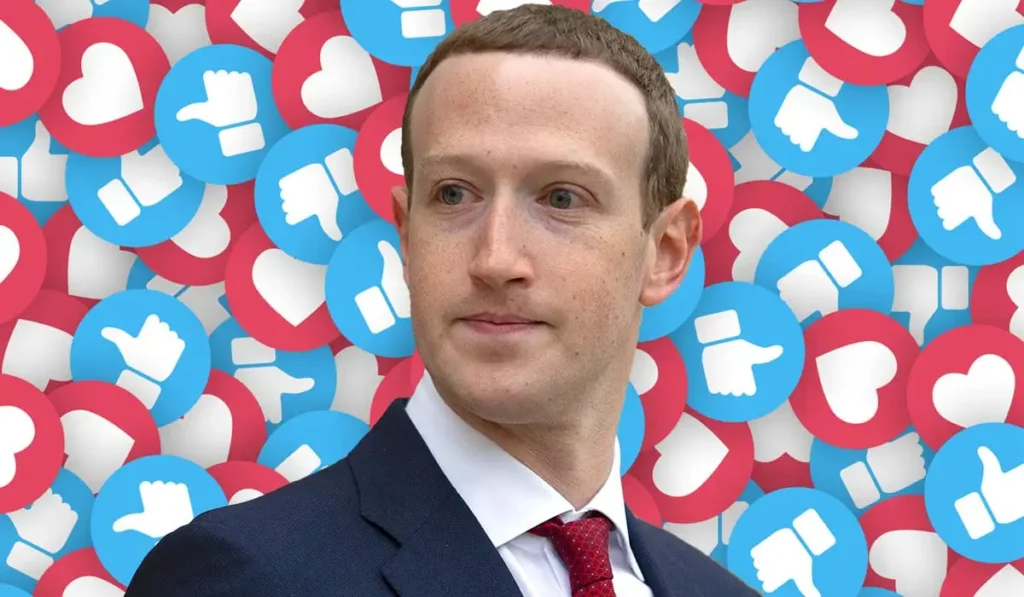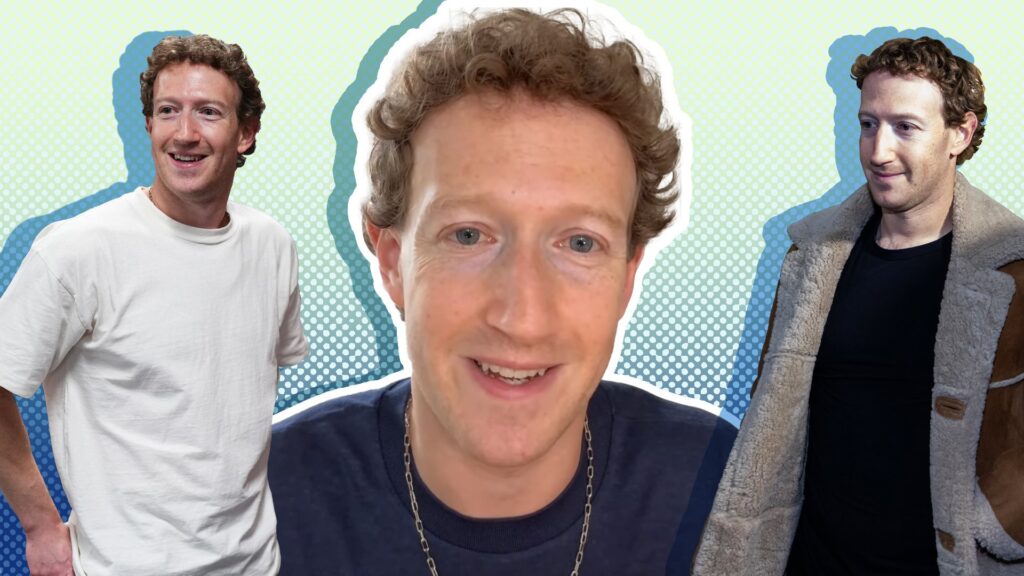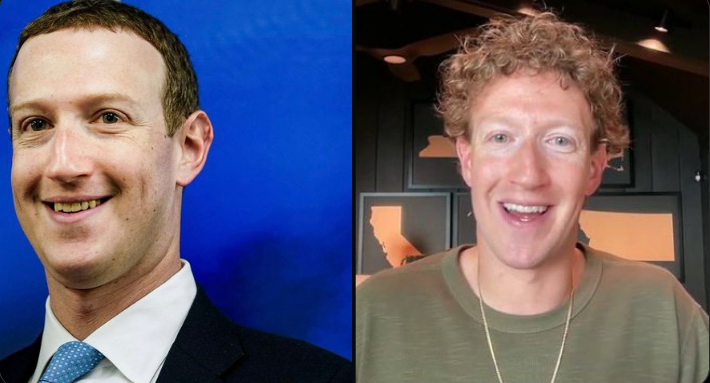Mark Zuckerberg’s Rebranding overhaul in recent years has captured the attention of millions worldwide, creating a buzz that few could have predicted. Known for years as a detached, robotic tech leader, Zuckerberg’s transformation into a more human, charismatic figure has become a masterclass in personal branding. The overhaul is no accident; it’s a deliberate and strategic pivot aimed at reshaping public perception of both himself and Meta, the company he leads.
In this in-depth exploration, we’ll analyze the key elements of Zuckerberg’s brand transformation, its potential business impacts, and the leadership lessons it offers.
A Long Journey: From Harvard Dorm to Global Leader
Mark Zuckerberg first entered the public eye in 2004 when Facebook (now Meta) launched from his dorm room at Harvard. His early image was defined by youth and innovation—a hoodie-wearing genius disrupting the tech world. However, as Facebook grew, so did its controversies.
Over the years, Zuckerberg’s image was marred by scandals like the Cambridge Analytica data breach, accusations of election interference, and his robotic appearance during congressional hearings. Public perception painted him as aloof and profit-driven, someone more concerned with building an empire than safeguarding the privacy and trust of Facebook’s users.
Fast forward to 2024, and Zuckerberg’s brand has undergone a radical transformation. He is no longer just the hoodie-clad tech CEO who inspired „The Social Network.“ His new image is strategic, charismatic, and carefully crafted to resonate with a broader audience.
The Need for Rebranding
Why did Mark Zuckerberg feel the need to overhaul his personal brand? The answer lies in the evolving public scrutiny faced by Meta and the broader tech industry. Zuckerberg’s public image had become increasingly intertwined with the issues plaguing his company—data privacy, misinformation, and regulatory challenges. The “tech villain” image that once served as a badge of power was now detrimental to both Zuckerberg and Meta.
But it’s not just Zuckerberg’s reputation at stake. In an era where CEOs are often the faces of their brands, personal image has a direct impact on the company’s bottom line. The shift was not just a PR move but a calculated business decision to preserve investor confidence, rebuild public trust, and set Meta up for future growth in areas like AI and the metaverse.
Zuckerberg’s recent rebranding efforts are an attempt to rewrite the narrative, one that positions him as a more relatable, approachable leader who cares about his legacy as much as his empire.

The New Mark Zuckerberg: A Physical and Emotional Transformation
1. Aesthetic Shift: From Hoodies to Designer Threads
One of the most visible elements of Zuckerberg’s transformation is his wardrobe overhaul. Gone are the gray t-shirts and hoodies that defined his early years. Today, he’s often seen wearing designer suits, graphic tees with Latin phrases, and even sporting a thick gold chain—a far cry from the „tech bro“ persona of the past.
This shift in fashion is more than just a superficial change. It’s a statement of intent. By adopting a more polished, thoughtful style, Zuckerberg is positioning himself as someone who is evolving alongside his company. His image has become that of a leader prepared to navigate the complexities of the tech world while maintaining a touch of cool.
2. Physical Transformation: The Fighter in Zuckerberg
Another striking part of Zuckerberg’s transformation is his newfound focus on fitness, particularly mixed martial arts (MMA). His forays into Brazilian jiu-jitsu and public fitness challenges have made headlines, showing the world a more human side of the man often portrayed as robotic.
This physical transformation has done wonders for Zuckerberg’s image. MMA training signals resilience, discipline, and strength—all qualities that are highly valued in leadership. It’s also helped to make him more relatable. When someone known for sitting behind a computer all day starts competing in high-stakes physical challenges, it naturally draws attention.
The transformation isn’t just about appearances—Zuckerberg’s participation in MMA shows a willingness to push his limits and engage in something intensely personal. It’s a metaphor for his leadership style as well—fighting not just for Meta’s future, but for his legacy.
3. Strategic Imagery: Carefully Curated Social Media Moments
Zuckerberg’s new image and rebrand isn’t just about clothes and fitness; it’s carefully crafted through his public appearances and social media posts. His 40th birthday photoshoot, for instance, was a carefully orchestrated narrative that mixed nostalgia with innovation. Photos recreating his childhood room were juxtaposed with images of Zuckerberg alongside tech giants like Bill Gates, presenting him as a visionary leader with a legacy.
Every detail of Zuckerberg’s public persona now tells a story. The viral moments—from his „Carthago delenda est“ t-shirt to his candid MMA videos—are not accidental. They are designed to convey messages about who Zuckerberg is becoming: a competitive yet thoughtful leader, more in tune with his humanity.

Why Does This Rebrand Matter?
Zuckerberg’s personal rebrand is not just a vanity project; it has far-reaching implications for Meta and the broader tech ecosystem.
1. Rebuilding Trust
Meta, formerly Facebook, has seen its reputation take serious hits in recent years. From privacy scandals to accusations of fueling misinformation, the company has struggled to maintain trust with its user base. By rebranding himself, Zuckerberg hopes to rebuild that trust.
A more relatable Zuckerberg could help Meta regain the confidence of its users and investors alike. By presenting a more human side, he’s making an implicit promise that Meta, too, is changing for the better. This trust is especially crucial as Meta shifts its focus toward the metaverse and AI, fields where public perception and trust are key.
2. Bolstering Investor Confidence
In the hyper-competitive tech industry, a company’s leadership is a direct reflection of its potential. A charismatic, visionary CEO can often sway investor confidence in favor of long-term growth.
Zuckerberg’s transformation into a more relatable, “cooler” version of himself has the potential to reassure investors that Meta is in capable hands. It signals that Zuckerberg is not only committed to innovation but also has the adaptability and emotional intelligence required to navigate the shifting tech landscape.
3. Attracting Top Talent
In the battle for tech talent, a company’s CEO plays a critical role. A leader who is seen as forward-thinking, approachable, and relatable can attract the best minds in the industry. Zuckerberg’s new persona positions him as a leader worth following, especially as Meta ventures into cutting-edge spaces like AI and the metaverse.
Talent attraction becomes even more important in an era when employees are looking for more than just a paycheck—they want to be inspired by their leadership.
Lessons in Personal Branding for Leaders
Mark Zuckerberg’s rebranding efforts offer valuable insights for leaders across industries. Here are key takeaways from his transformation:
1. Perception is Reality
In the age of social media, how the world perceives you can have a direct impact on your business. Zuckerberg’s transformation shows that personal branding is not just for influencers—it’s critical for CEOs and business leaders as well. Leaders must recognize that their personal image is inseparable from their company’s brand.
2. Adaptability is Key
The world of business is constantly evolving, and so should leaders. Zuckerberg’s ability to shed his old image and embrace a new one shows amd rebrand that leaders must be willing to adapt not only their business strategies but also their public personas.
3. Authenticity Wins
While Zuckerberg’s transformation is clearly a strategic effort, it works because it feels authentic. His public image aligns with real changes in his personal life, like his MMA training and fitness journey. Leaders should take note: authenticity matters. A carefully curated persona may succeed in the short term, but lasting change requires genuine evolution.
4. Every Detail Counts
From clothing choices to social media posts, every aspect of a leader’s public persona sends a message. Zuckerberg’s meticulous attention to detail in crafting his image shows that leaders must be deliberate in how they present themselves to the world.
5. Legacy Matters
As Zuckerberg enters his 40s, his focus is shifting toward legacy building. This rebrand is not just about the here and now—it’s about how he’ll be remembered in tech history. Leaders should always consider how their actions today will shape their legacy tomorrow.

What’s Next for Zuckerberg?
It’s still early to say whether Mark Zuckerberg’s rebrand will completely transform public opinion. However, it’s clear that his new image is resonating with audiences, generating conversations, and restoring some faith in his leadership.
The real test will come during times of crisis—how will this new, more relatable Zuckerberg navigate future challenges, particularly as Meta faces regulatory scrutiny and competition in the tech space?
For now, Zuckerberg’s transformation is a compelling case study in personal branding. It’s a reminder to all leaders: your image is more than skin deep. It’s a reflection of your values, your strategy, and, ultimately, your legacy.

